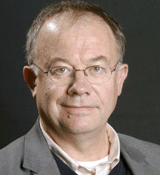Der französische Islamwissenschaftler Olivier Roy, der für die Neomuslime im Westen den Begriff „born again muslims“ geprägt hat, schreibt in einem Essay über die Zukunft des Säkularismus in Einwanderergesellschaften, warum die christliche Rechte und die säkulare Linke sich heute in der Kritik des Islams treffen:
„Contemporary western societies, however, are, in fact, secularised, either because the separation of church and state is a constitutional principle (the United States); because civil society no longer defines itself through faith and religious practice (the United Kingdom, Germany, the Scandinavian countries); or because these two forms of secularism converge and reinforce each other, thus giving birth to what the French call laïcité. And yet when one opposes the west and Islam, it is by putting forward the Christian origins of western culture or, on the contrary, by emphasising its secularism. In other words, when we question Islam’s capacity to become „westernised“, we are referring to two different forms of westernisation: Christianisation and secularisation.
True, things are more complex, and it would be easy to show that western secularism actually has a Christian origin – as I do in my book, Secularism Confronts Islam. But it is interesting to see that the critique of Islam is today a rallying-point for two intellectual families that have been opposed to each other so far: those who think that the west is first and foremost Christian (and who, not that long ago, considered that the Jews could hardly be assimilated) and those who think that the west is primarily secular and democratic. In other words, the Christian right and the secular left are today united in their criticism of Islam.
A debate of abstraction
But if Christianity has been able to recast itself as one religion among others in a secular space, why would this be impossible for Islam? Two arguments are usually summoned to make this case: the first is theological and says that the separation between religion and politics is foreign to Islam; the second is cultural and posits that Islam is more than a religion: it is a culture. Both arguments are addressed in Secularism Confronts Islam.
But this theoretical debate, which thrives on op-ed pieces and talk-shows, is increasingly solved in the practice of Muslims themselves. The experience of everyday life as a minority brings Muslims to develop practices, compromises, and considerations meant to cope with a secularism that imposes itself on them. This does not mean that Islam has never experienced secularism but only that, with the exception of a few isolated thinkers, it never felt the need to think about it. Today, both life-conditions in the west and the domination of the western model through the process of globalisation compel many Muslims to relate explicitly to this form of secularism, somewhat urgently and under the pressure of political events. This reflection spans a very wide intellectual spectrum that goes from what I call neo-fundamentalism to liberal positions, proceeding through all kinds of more or less enlightened conservatism.“
